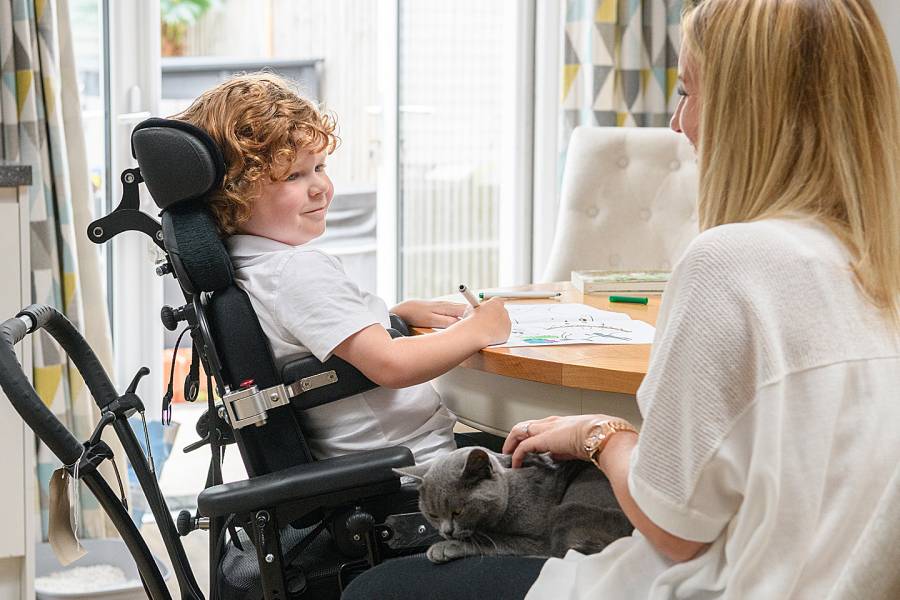For parents of children with special needs, who often carry an extra heavy load in the best of times, the burden while on home quarantine is intensified. Children who have medical, behavioral, learning, developmental, and/or mental health challenges may need extra support and additional services. On top of managing home learning and therapy schedules, even ordinary aspects of life such as trips to the doctor or shopping excursions provide challenges.
Recently, a Benefits & Worklife Zoom webinar titled Parenting a Child With Special Needs During a Pandemic was held as part of the Coping & Thriving Webinar Series to discuss the concerns and needs of affected Johns Hopkins employees.
During the conversation, which was moderated by Jeanne Lovy, director of Family Support Services in the Office of Benefits & Worklife, panelists candidly shared their own experiences, challenges, and expertise in the field, and provided resources for Hopkins parents.
Panelists were Beth Bounds, senior clinical social worker, Johns Hopkins Children's Center; Patrice Brylske, director of Child Life Services, Johns Hopkins Children's Center; Gregory Burks, community engagement specialist, JHU Office of Benefits & Worklife; Tracy Curry, director of human resources, Johns Hopkins Center for Talented Youth; and Tana Hope, director of Clinical Services, Child & Family Therapy Clinic, Kennedy Krieger Institute.
The following insights were shared:
Help children process and cope with health care encounters. COVID has brought many restrictions to health care and is creating barriers for children. Resources are available for developmentally appropriate conversations and ways you can prepare your child for these situations.
Stick to what you know. Don't stop what you are already doing to care for your children and your family. Build on what is working, get creative, and remain flexible. Everything has changed, from morning to bedtime; try to find the "next normal" that is positive and beneficial to your family.
Self-check-in and awareness. Like a rubber band, we keep stretching and eventually may snap. Check in with yourself routinely to gauge your feelings and subsequent reactions. Give yourself and others grace. What may be hard today may not be tomorrow.
Be honest and real about your needs. What can you do today? What can't you do? Lean on your village, support system, or dream team. Don't be afraid to be vulnerable and ask for the help you may need.
Find out what is available and what can be done. In terms of schools reopening and the special needs of your child, find out what your district has to offer and what could be done to meet your family's needs. Have the conversation. Ask the questions. Advocate for your needs.
You do not have to do this alone. One of the silver linings of the COVID-19 pandemic is the availability of telehealth medicine. You can stay connected with speech and language therapies, occupational therapy, and psycho/family therapy.
Find your strengths. Every family has a strength. Resilience is part of our human nature and is there even in our most desperate, dark times. Find that piece/peace each day to guide you through.
Hold on to and cherish your moments of hope, resilience, and unexpected joy.
Check out resources shared by the panelists:
- COVID-19 Resources from Johns Hopkins Children's Center
- Johns Hopkins mySupport
- HealthyChildren.org
- American Psychological Association
- Maryland Family Network
- Centers for Disease Control and Prevention
- Very Well Family
- Little Mended Hearts
- UNICEF
A full recording of the panel discussion can be found here.
Posted in Health+Well-Being
Tagged hr newswire








